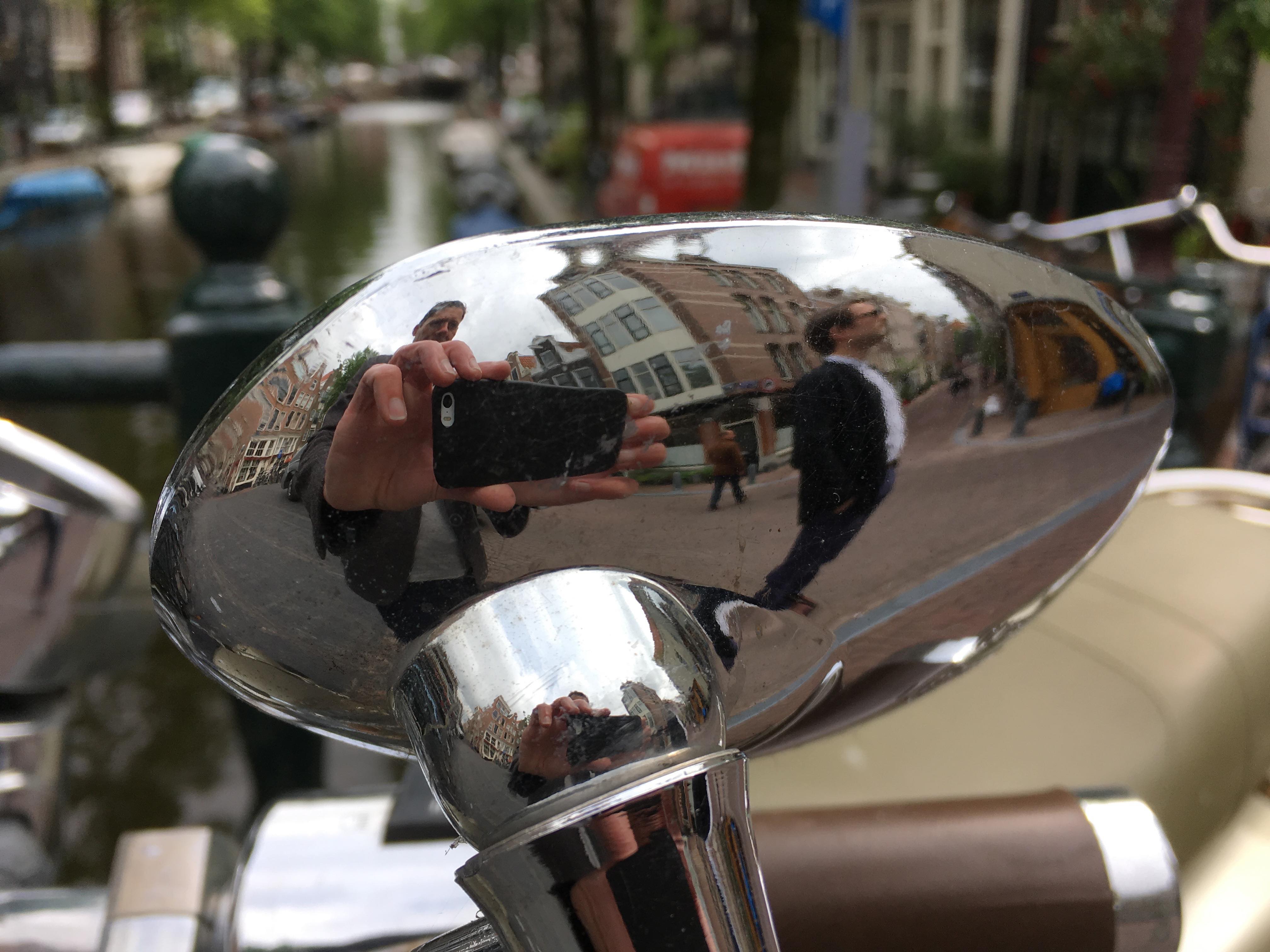Friday 18 November
James Lamb and Jeremy Knox, Centre for Research in Digital Education, School of Education, University of Edinburgh
12pm - 2pm
Venue: Walking workshop - leaving from the entrance to St John’s Land, Moray House School of Education, Holyrood Campus. Please bring a mobile device if you can (eg smartphone), and dress for walking outside.
Please sign up here - limited to 20 places

Wondering about the city: making meaning in Edinburgh’s Old Town
Put your PC to sleep, collect your coat and step into a pair of good walking shoes. Grab your smartphone and some spending money. Leave the campus behind and take an unscripted wander through the city. Who knows what you might find?
This seminar will take place within the narrow closes and cobbled streets of Edinburgh’s Old town. Walking and working together we will follow a path through the city that is guided by our research interests, as well as the sights, sounds and other phenomena that attract our interest. In the role of participant-researchers we will gather visual, aural and other digital data with a view to investigating how we experience and understand our urban surroundings.
Our exercise will build upon earlier explorative walks though London and Amsterdam by James Lamb, Jeremy Knox and their colleague Michael Sean Gallagher. On each occasion they arrived ahead of an academic conference in order to undertake an excursion of the host city. Using their smart phones they gathered images, sounds and other data which then formed the basis of their conference presentation the next day (1).
Walk and talk. Record your surroundings and reflect upon their significance. Every crossroad becomes an act of negotiation and an opportunity for impromptu learning as you discuss which route to follow and why. Through the interests of colleagues you become newly aware of the meaning-carrying milieu that would otherwise have been invisible or silent.
This exercise can be situated within the growing critical interest in urban walking (Richardson 2015) as well as the tradition of walking ethnography (Vergunst and Ingold, 2008). It will be of interest to those undertaking research within digital culture and mobile learning (see for instance Sharples et al. 2007) and anyone who has an interest in how we construct meaning from our surroundings, for instance through sensory ethnography (Pink 2011) or multimodal analysis (Kress and Van Leeuwen 2001).
(1) http://www.james858499.net/blog/multimodal-derive-in-amsterdam
Booking: We have a capacity of 20 participants for this exercise therefore please book a place, following the booking link at the top of the page.
Practical information: Our walk will set off from the entrance to St John’s Land at 12pm and we will return by 2pm. Where the weather is unkind we will take refuge in a cafe or other venue that others refreshment and respite from the rain. To take part in this exercise you will need a mobile device capable of gathering data that interests you (for instance images, sounds, distance, direction) clothing suited to a wintry excursion around Edinburgh, and a desire to take to the streets in search of meaning.
About the workshop leaders:
James Lamb is an ESRC-funded PhD student in the Centre for Research in Digital Education. His research concerns multimodal assessment practices in the Humanities and Social Sciences. In particular, he is interested in how approaches to knowledge construction in the creative disciplines can encourage us to look beyond the privileging of conventional language-based approaches within summative assessment. He is also interested in the way that multimodality, with its attention to the way that semiotic resources combine to convey meaning, offers us ways of investigating the learning spaces of online students, and understanding our urban environment more generally.
Jeremy Knox is a Lecturer in Digital Education, and a member of the Centre for Research in Digital Education. His research interests include critical posthumanism and new materialism, and the implications of such thinking for education and educational research, with a specific focus on the digital. His published work includes critical perspectives on Open Educational Resources (OER) and Massive Open Online Courses (MOOCs).
References
- Kress GR and Van Leeuwen T (2001) Multimodal Discourse: The Modes and Media of Contemporary Communication. London: Arnold.
- Pink S (2011) Multimodality, Multisensoriality and Ethnographic Knowing: Social Semiotics and the Phenomenology of Perception. Qualitative Research 11(3): 261-276.
- Richardson T (ed) (2015) Walking Inside Out: Contemporary British Psychogeography. London: Rowman and Littlefield.
- Sharples M, Taylor J and Vavoula G (2007) A Theory of Learning for the Mobile Age. In: Andrews R and Haythornwaite C (eds) The Sage Handbook of ELearning Research. London: Sage.
- Vergunst JL and Ingold T (eds) (2008) Ways of Walking: Ethnography and Practice on Foot. Routledge: Oxford.